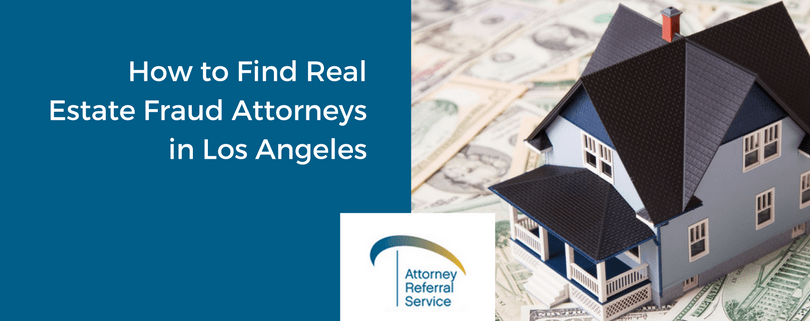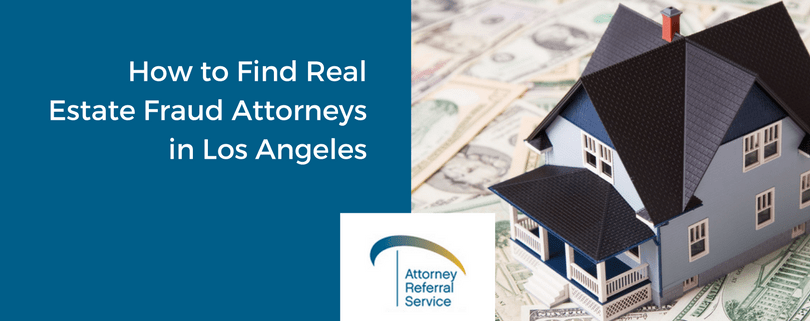How to Find A Real Estate Fraud Attorney in Los Angeles
A real estate fraud attorney in Los Angeles will ensure you are protected, guided, and prepared for success when facing a legal problem.
Real estate fraud is a big problem in Los Angeles.
It may be committed when there is a material misrepresentation of facts or a concealment of facts (non-disclosure) by the real estate broker or agent. It can also occur if there is a breach of fiduciary duty by the broker or agent.
We wanted to take a moment to explore this topic in detail so you can recognize it should you experience it.
Let’s take a closer look.

What is Real Estate Fraud?
Fiduciary duties refer to the agent or broker’s responsibility to give the seller the highest level of loyalty, good faith, reasonable care, and honesty. If the agent or broker has knowledge of material facts relative to a sale, he or she is under the highest obligation to disclose those facts.
And this is true even if it results in a canceled sale.
Most fraud happens when the seller and his agent failed to disclose important information to the buyer.
This can include the title of the property, known material defects or other material matters of importance that might affect the buyer’s decision.
The buyer decides what is of material importance. If he or she bases the buying decision on a set of views or opinions based on information provided by the seller and the agent, then that information cannot be fraudulent or misleading.
If any information affects the perceived value or desirability of the property, then that information becomes material to the purchase and must be disclosed to the buyer.
Real Estate Transactions in California
According to California law, real estate transactions require the disclosure of known facts in a document called the Real Estate Transfer Disclosure Statement. If there are other facts not in this document, they should also be disclosed, even in “As is” sales.
The law is designed to protect real estate buyers from an unethical seller and broker and to make sure that the buyer is given sufficient and accurate information on the property. The goal is to help the buyer make an informed decision on whether or not to purchase the property.
An informed decision cannot be made if the information is missing or misleading. The seller and agent have a duty to disclose any known or reasonably discoverable defects in the property. This protects the buyer from a seller or agent who claims ignorance of the defects.
There are many kinds of real estate fraud including predatory lending, fraudulent counseling agencies, over-aggressive service agencies, land fraud and rental fraud, equity skimming, refinance fraud, condominium bait and switch – and much more.
Property Sold “As Is” is No Exception to the Law
An “as is” property is one in which the buyer is buying a property in the condition that is observable and visible. However, the seller and agent are still responsible for disclosing material facts on defects that are not observable and might affect the buyer’s perception of the value of the property.
The “as is” sale does not relieve the seller or seller’s agent from possible fraud liability stemming from nondisclosure.
The California Supreme Court has ruled that a contract does not protect the seller from real estate fraud.
If you’re purchasing property “as is” be sure you receive information about any defects that are not observable.
Protecting Seniors from Real Estate Fraud in Los Angeles
Seniors are particularly vulnerable to real estate fraud.
Most of them have homes as their primary asset. When they experience fraud from caretakers or are victimized by mortgage fraud, they are at risk to lose their home or be involved in expensive legal disputes.
Real estate fraud can occur in many ways. Criminals search public records to find homes that have significant equity or are mortgage-free. Many of these are owned by seniors. The con artists pose as the homeowner and take loans that they do not pay back.
When payments are not made on the loan, the real homeowner may be foreclosed, forced to find an attorney to clear the title and risk losing his or her home.
There is also the danger of Los Angeles seniors using “reverse mortgages.” These are home-equity loans that allow homeowners to get cash by converting some of the equity while they retain ownership.
While reverse mortgages may be helpful to some seniors, if they cannot repay the loans, they risk losing their homes.
To prevent real estate fraud, it is suggested that you should not take out any loan, transfer property, or do a reverse mortgage without the advice or trusted friends or family member. They should even be involved as witnesses in any transaction.
If you receive a letter from a mortgage company or bank notifying you of any mortgage on your home that is unfamiliar to you or one for which you never applied, you should call the Los Angeles County Department of Consumer and Business Affairs Real Estate Fraud Hotline at (800) 973-3370. And notify the mortgage company about your concerns and the fact you did not apply for this loan.
It is also advised that you do not sign anything without fully understanding the ramifications of what you are signing. It is a good idea, if you are unsure of the consequences, to have a trusted friend or family member also read and understand any document you sign.
The Dangers of Reverse Mortgages
Reverse mortgages are available to homeowners in Los Angeles who are at least 62 years old, have equity in their home, and want additional cash or monthly income.
While in a conventional mortgage, the homeowner pays the bank a monthly payment, a reverse mortgage has the bank paying the homeowner from the equity he has.
The bank gets repaid when the homeowner sells the home, refinances, or passes away and his heirs repay the loan.
Reverse mortgage transactions can be complex. Homeowners in Los Angeles seeking these transactions should consult with a housing counselor approved by HUD. The lender must provide a worksheet that outlines the topics that will be covered by the housing counselor. Under California Law, the homeowner is entitled to a 7-day right-to-cancel. This prevents the lender from charging any fees for this period is over.
The home is appraised, and the lender assesses the value of the property based on equity, the age of the homeowner, and costs of the loan.
The homeowner decides on how to receive the money, either in a lump sum or in monthly payments.
A credit line is established showing how much of the loan can be used and a contract is created to outline the payments to be made to the homeowner as well as the repayments including interest.
Reverse mortgages are more expensive than traditional mortgages because they have higher interest rates and fees. Interest charges are added to outstanding balances each month, so the total debt keeps increasing each month.
As you borrow money on your home, your asset gets reduced. The lowering of equity means lower home and asset value for you and your heirs.
As mentioned above, reverse mortgages have the potential for fraud. For your protection, make ensure that your lender is licensed and in good standing. You should contact the Department of Business Oversight at (866) 275-2677 or Bureau of Real Estate at (877) 373-4542.
Legal aid in Los Angeles for real estate fraud
It is always advisable to seek legal assistance for real estate fraud cases in Los Angeles. A good attorney referral service (ARS) can help find the right attorney for you. Make sure the ARS is qualified and certified by the state of California.
In addition, there are public offices in the County of Los Angeles that can provide guidance They include the Department of Consumer Affairs, County of Los Angeles, and the Los Angeles County District Attorney’s Office.
Are you in search for a certified attorney to represent you?
Let us help you find one today!



